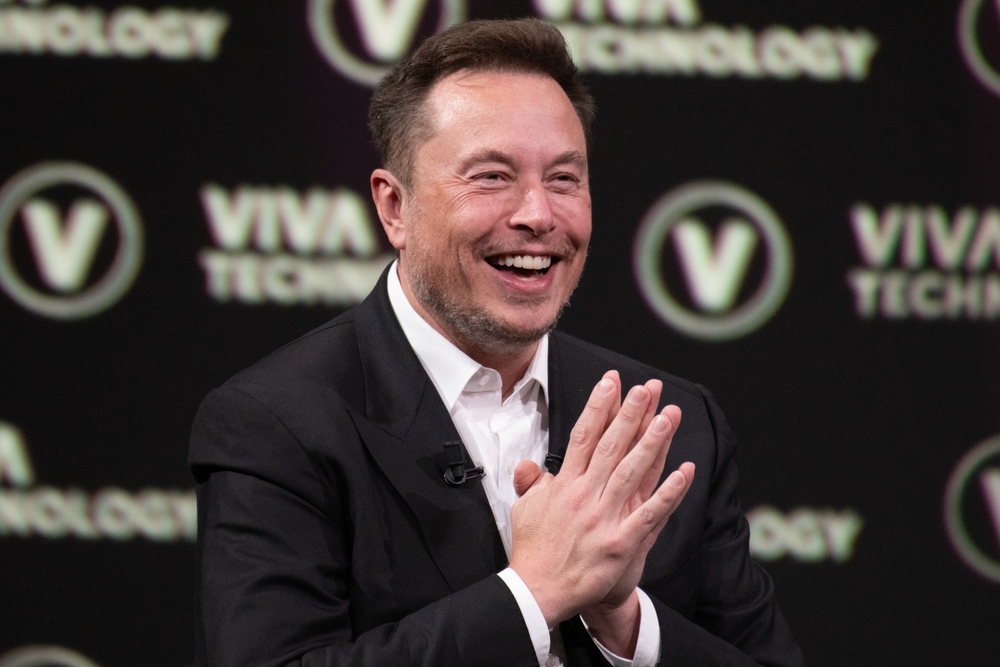Your cart is currently empty!
Canadian Premier cancels $100,000,000 contract with Elon Musk in retaliation for Trump tariffs

Trade wars have a way of escalating like a high-stakes chess match—each move met with a counterstrike, each decision carrying consequences beyond the board. The latest move? Ontario Premier Doug Ford just canceled a $100 million contract with Elon Musk’s Starlink, a deal meant to expand broadband access to rural communities. The reason? Retaliation against Donald Trump’s decision to impose hefty tariffs on Canadian exports.
But in this battle of economic titans, who really stands to lose? The billion-dollar corporations caught in the crossfire, or the everyday people in remote Ontario towns who were promised high-speed internet? As tensions between Canada and the U.S. mount, this decision raises critical questions about politics, business, and the unintended consequences of trade disputes.

Background: Trump’s Tariffs on Canada
For Canada, trade with the U.S. has always been a tightrope walk—one that can shift dramatically with the stroke of a presidential pen. That balance was upended once again when former U.S. President Donald Trump announced a fresh wave of tariffs on Canadian exports, reigniting tensions between the two countries. The new levies, aimed at industries like steel, aluminum, and certain manufactured goods, were framed as a way to “protect American jobs” and reduce dependency on foreign supply chains. While these policies played well to Trump’s base, they sent ripples of concern through Canada’s economic and political landscape.
The stakes are high. The U.S. is Canada’s largest trading partner, with nearly 75% of Canadian exports flowing south of the border. Any disruption to that relationship carries serious consequences. Business leaders and economists quickly warned that the tariffs would increase costs for Canadian manufacturers, leading to job losses and supply chain disruptions. Ontario, in particular, was vulnerable. As Canada’s manufacturing hub, the province relies heavily on cross-border trade to sustain industries ranging from auto production to steel and aluminum processing. For many, the tariffs felt like an unfair attack on a long-standing economic partnership, one that had benefited both nations for decades.
Ford’s Decision to Cancel the Contract
Doug Ford’s decision to cancel the $100 million Starlink contract was swift, decisive, and politically charged. Announcing the move, the Ontario premier framed it as a necessary response to what he called “unfair and punitive” U.S. tariffs that directly harmed Canadian industries. If American policies were going to take a toll on Ontario’s businesses and workers, Ford argued, then Ontario had every right to reconsider its financial commitments to U.S.-based companies—even one as high-profile as Elon Musk’s SpaceX.
Ford did not mince words when addressing the situation. “We won’t stand by while the U.S. government unfairly targets Canadian industries,” he said in a statement. “Ontario taxpayers’ money should support Ontario businesses, not fund a company that ultimately benefits from a government imposing tariffs on us.” His administration positioned the cancellation as a form of economic retaliation—a strategic move to signal that Canada would not accept trade policies that disproportionately hurt its economy without pushing back.
Beyond the broader political message, Ford also justified the decision on economic and national interest grounds. He suggested that the province would look for alternative providers—potentially Canadian-based options—to fulfill the rural broadband initiative. While no immediate replacement was named, his government reassured Ontarians that the cancellation would not mean abandoning the goal of improving connectivity in underserved communities.
Still, the move raised pressing questions: Was this a smart show of strength against unfair U.S. policies, or a decision that would ultimately hurt rural Ontarians who had been promised faster internet? While Ford’s rhetoric focused on standing up for Canadian industry, critics pointed out that the real impact of the decision might be felt by the very people the contract was meant to help.

Ontario’s $100M Starlink Deal
Before politics complicated the equation, Ontario’s deal with SpaceX’s Starlink was seen as a game-changer for rural broadband access. Signed in 2023, the $100 million contract aimed to provide high-speed internet to remote and underserved communities across the province—a problem that had long plagued rural Ontarians. Traditional internet providers had struggled to extend broadband infrastructure into these areas due to high costs and logistical challenges. For many communities, Starlink’s satellite-based service was viewed as the most viable solution, promising faster speeds and broader coverage than existing options.
The deal was a crucial part of Ontario’s broader efforts to bridge the digital divide. At the time of signing, Premier Doug Ford’s government had emphasized that access to reliable internet was no longer a luxury, but a necessity—essential for education, business, healthcare, and overall economic growth. The contract was expected to benefit thousands of households and small businesses that had long struggled with slow, unreliable connections. Ford himself had touted the deal as a “historic investment” in Ontario’s digital infrastructure, highlighting the importance of ensuring that every corner of the province had access to modern connectivity.
For SpaceX, the agreement was also a strategic win. Starlink, which had already made strides in rural broadband markets worldwide, was expanding aggressively in North America. The Ontario contract was a major milestone, reinforcing its reputation as the go-to provider for hard-to-reach regions. The partnership underscored Starlink’s growing role in global internet expansion, further bolstering Elon Musk’s vision of a world where satellite-based connectivity could bypass traditional infrastructure constraints.
Reactions and Fallout
The cancellation of Ontario’s $100 million Starlink contract sent shockwaves through political and business circles on both sides of the border. While Premier Doug Ford positioned the move as a necessary retaliation against Trump’s tariffs, the decision was met with mixed reactions—from praise by those who saw it as a bold stand for Canadian industry to sharp criticism from those who feared it would do more harm than good.
One of the most immediate concerns came from rural Ontarians, many of whom had pinned their hopes on Starlink to finally bring reliable high-speed internet to their communities. For years, these regions had struggled with slow, inconsistent broadband, limiting their ability to work remotely, access telehealth services, or compete in a digital economy. “We’re the ones caught in the middle of a political fight,” said one rural business owner in Northern Ontario. “We don’t care about tariffs—we just want decent internet.” Many residents expressed frustration that they were now left in limbo, uncertain whether an alternative solution would materialize anytime soon.
Elon Musk and SpaceX, meanwhile, remained relatively quiet in the immediate aftermath of the decision. While no official statement was released, insiders suggested that Starlink executives were disappointed but not entirely surprised, given the political tensions at play. Some analysts noted that Ontario’s contract—while significant—was a small fraction of Starlink’s global business, meaning the company was unlikely to suffer financially. However, the optics of losing a government-backed deal in North America did raise questions about how political factors might shape Starlink’s future expansion efforts.
Alternative Plans for Rural Internet Access
With the Starlink deal officially scrapped, the Ford government found itself under pressure to deliver an alternative solution for the thousands of rural Ontarians who had been counting on the project. While Ford assured the public that the province was exploring other options, the lack of a clear, immediate replacement raised concerns about delays and the feasibility of finding a Canada-based alternative that could match Starlink’s capabilities.
One of the most pressing challenges is infrastructure. Traditional broadband providers have long struggled to expand service into remote regions due to the high costs of building fiber-optic networks across vast, sparsely populated areas. Starlink had been a particularly attractive option because its satellite-based system bypassed the need for expensive ground infrastructure, making it one of the few viable solutions for hard-to-reach communities. Without it, Ontario must now look at other satellite providers or invest heavily in terrestrial broadband projects—both of which come with significant financial and logistical hurdles.
Some industry experts have suggested that Ontario could turn to Canadian-based telecommunications companies such as Bell, Rogers, or Xplore (formerly Xplornet), which already provide rural internet services. However, these providers have historically struggled to offer the same speed, affordability, and accessibility that Starlink had promised. Bell, for example, has expanded its fiber-optic and fixed wireless services in rural areas, but cost and rollout speed remain major concerns. The prospect of a government-subsidized expansion project has been floated, but with a price tag potentially exceeding the $100 million Starlink deal, it remains unclear whether the province is willing to make that investment.
The Broader Impact on Ontario’s Economy and Digital Future
Doug Ford’s decision to cancel the $100 million Starlink contract is more than just a trade dispute—it’s a move that could reshape Ontario’s technological future and economic competitiveness. Rural businesses, remote workers, and students who had been counting on Starlink’s high-speed internet now face uncertainty, as the province scrambles to find an alternative. Without a clear backup plan, Ontario risks falling behind in the digital economy, widening the gap between urban and rural communities.
Beyond immediate broadband concerns, this decision sends a signal to global technology companies and investors. Ontario has positioned itself as a hub for innovation, AI, and digital services, but if political factors start interfering with major tech investments, it could discourage future partnerships. Companies considering broadband expansion or other infrastructure projects may hesitate, fearing that government contracts can be scrapped when politics get in the way.
Now, the pressure is on the Ford government to deliver a replacement broadband solution quickly and effectively. If a viable alternative isn’t secured soon, Ontario’s reputation as a forward-thinking, business-friendly province could take a hit. More importantly, rural Ontarians—who rely on digital connectivity for education, healthcare, and business—could be left behind in an increasingly connected world.
